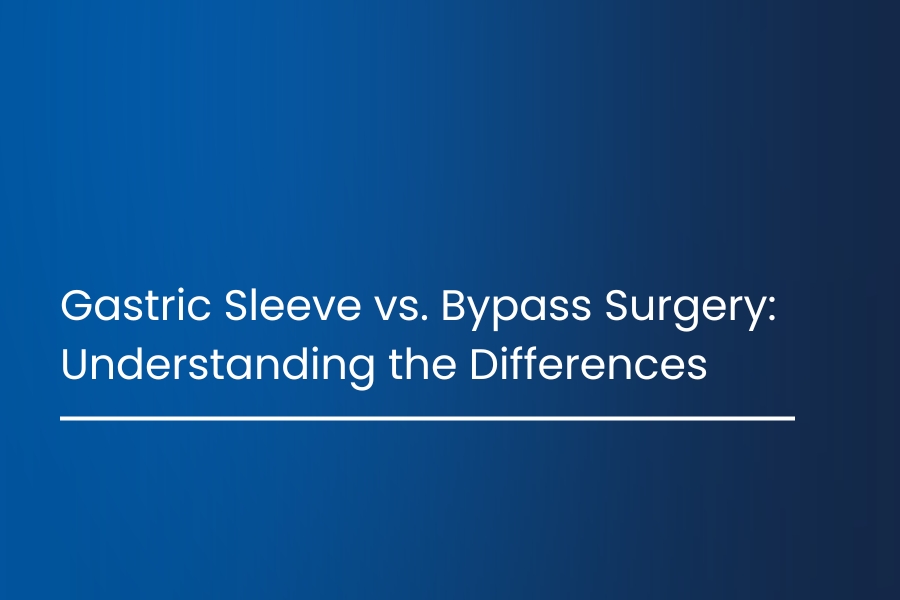Embarking on the journey of weight loss surgery is a significant decision, and with several options available, it’s essential to understand the nuances between procedures to make an informed choice. In this blog post, we’ll explore the differences between two popular bariatric surgeries: gastric sleeve and bypass surgery. Let’s dive in.
1. Surgical Procedure:
Gastric Sleeve: Also known as sleeve gastrectomy, this procedure involves removing a large portion of the stomach, creating a smaller, banana-shaped stomach pouch.
Bypass Surgery: Gastric bypass, involves creating a smaller stomach pouch and rerouting a portion of the small intestine to bypass the rest of the stomach and upper small intestine.
2. Mechanism of Action:
Gastric Sleeve: The primary mechanism of the gastric sleeve is restriction. By reducing the size of the stomach, it limits the amount of food that can be consumed, leading to decreased calorie intake and weight loss.
Bypass Surgery: Gastric bypass combines restriction and malabsorption. In addition to reducing stomach size, it reroutes the digestive tract, limiting the absorption of calories and nutrients.
3. Weight Loss and Health Outcomes:
Both procedures are highly effective in promoting weight loss and improving obesity-related health conditions such as type 2 diabetes, hypertension, and sleep apnea.
Gastric bypass tends to result in slightly more weight loss and a higher rate of resolution for conditions like diabetes, but both surgeries offer significant benefits.
4. Surgical Risks and Complications:
Gastric Sleeve: While generally considered safe, potential risks of gastric sleeve surgery include bleeding, infection, leaks along the staple line, and vitamin deficiencies over time.
Bypass Surgery: Gastric bypass carries similar risks as gastric sleeve surgery, with additional risks related to the rerouting of the digestive tract, such as dumping syndrome and nutritional deficiencies.
5. Lifestyle Changes and Maintenance:
Both procedures require lifelong commitment to dietary modifications, regular exercise, and follow-up care to ensure long-term success and prevent complications.
While both surgeries can lead to significant weight loss, individual experiences may vary, and success ultimately depends on adherence to lifestyle changes.
Both gastric sleeve and bypass surgery are powerful tools for weight loss and improving health outcomes in individuals struggling with obesity. The choice between the two procedures depends on factors such as individual health profile, preferences, and surgeon recommendation. Schedule your consult today with Dr. Arias to determine the most suitable option for your unique needs and goals.



